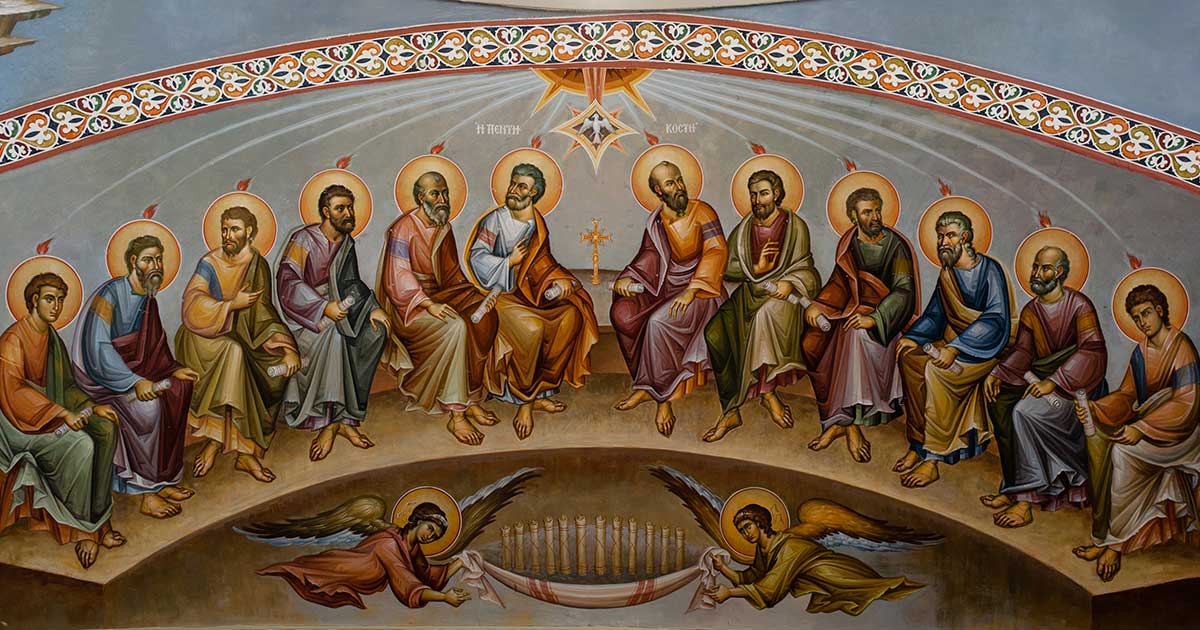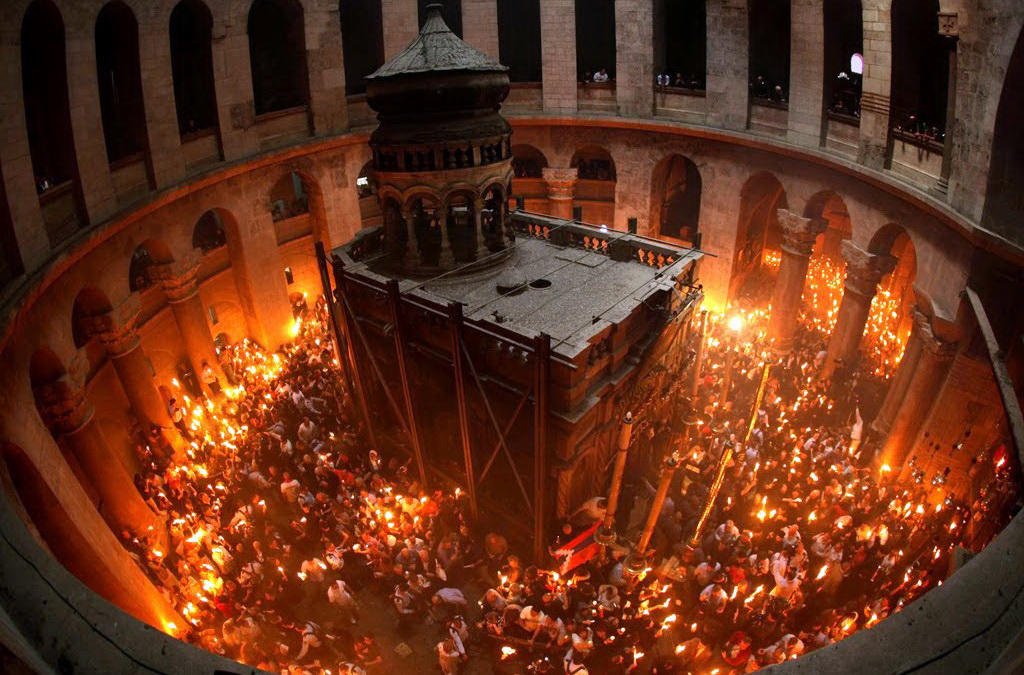
Holy Orthodoxy

orthodox mission
concord, nc


" We knew not whether we were in heaven or on earth, for surely there is no such splendor or beauty anywhere upon earth. We cannot describe it to you: only this we know, that God dwells there among men. "
Emissaries of Prince Vladimir of Kiev
History of The Orthodox Church
T he history of the Orthodox Church actually begins in the Acts of the Holy Apostles, with the Descent of the Holy Spirit: When the day of Pentecost had come, they were all together in one place. And suddenly a sound came from heaven like the rush of a mighty wind, and it filled all the house where they were sitting. And there appeared to them tongues as of fire, distributed and resting on each one of them. And they were all filled with the Holy Spirit and began to speak in other tongues, as the Spirit gave them utterance (Acts 2:1-4). As the text further tells us, on that same day, after St. Peter had preached to the gathered A people, those who received his word were baptized, and there were added that day about three thousand souls (Acts 2:41), thus constituting the first Christian community at Jerusalem.
This first community of Christians, headed by St. James, the Brother of the Lord the first Bishop of the city was later scattered by the persecutions which followed the stoning of the first martyr of the Christian Church, St. Stephen: And on that day a great persecution arose against the church in Jerusalem; and they were all scattered throughout the region of Judea and Samaria, except the Apostles (Acts 8:1).
At the same time, faithful to the Lord's command to go...and make disciples of all nations, baptizing them in the name of the Father and of the Son and of the Holy Spirit (Matt. 28:19), the Apostles went out and preached wherever they went, first to the Jews and then to the Gentiles, so that in a surprisingly short time, Christian communities had sprung up in all the main centers of the Roman world and beyond. Their exploits are recorded in the Acts, as well in the inner tradition of the Orthodox Church.

Holy Tradition
O ne of the distinctive characteristics of the Holy Orthodox Church is its changelessness, its loyalty to the past, its sense of living continuity with the ancient Church. This idea of living continuity may be summed up in one word: Tradition. As St. John of Damascus says, We do not change the everlasting boundaries which our fathers have set, but we keep the Tradition, just as we received it [On the Holy Icons, II, 12]. To an Orthodox Christian, Tradition means the Holy Bible; it means the Creed; it means the decrees of the Ecumenical Councils and the writings of the Fathers; it means the Canons, the Service Books, the Holy Icons, etc. In essence, it means the whole system of doctrine, ecclesiastical government, worship and art which Orthodoxy has articulated over the ages [Timothy Ware, The Orthodox Church, p.204].
Orthodox loyalty to Tradition [the things of the past] is not something mechanical or lifeless, however. Tradition is a personal encounter with Christ in the Holy Spirit, as Bishop Kallistos affirms. Tradition is not only kept by the Church it lives in the Church, it is the life of the Holy Spirit in the Church [The Orthodox Church, p.206]. Thus Tradition must be seen and experienced from within. Tradition is a living experience of the Holy Spirit in the present. While inwardly unchanging (since God does not change), Tradition constantly assumes new forms, supplementing the old, but not superceding it.
Our Lord tells us that when the Spirit of truth comes, He will guide you into all the truth (John 16:13) and this promise forms the basis of Orthodox respect for Holy Tradition. Thus, as Fr. Georges Florovsky expresses this idea: Tradition is the witness of the Spirit; the Spirit's unceasing revelation and preaching of good things.... To accept and understand Tradition we must live within the Church, we must be conscious of the grace-giving presence of the Lord in it; we must feel the breath of the Holy [Spirit] in it.... Tradition is not only a protective, conservative principle; it is, primarily, the principle of growth and regeneration.... Tradition is the constant abiding of the Spirit and not only the memory of words [Sobornost: the Catholicity of the Church, in The Church of God, pp. 64-5].

Prayer & Salvation
T he goal of the Christian's life on earth is salvation in our Lord Jesus Christ and, at the same time, communion with God. The means for this communion is prayer, and through his prayer the Christian is joined in one spirit with the Lord (I Cor. 6:17). Prayer is the focal point and foundation of spiritual life and the source of salvation. Without prayer, as St. John Chrysostom says, there is no life in the spirit. Without prayer man is deprived of communion with God and can be compared to a dry and barren tree, which is cut down and thrown into the fire (Matt. 7:19).
In prayer, the Christian concentrates together all his spiritual acts. Prayer draws down to him the grace of God and is an invaluable instrument of spiritual defense in the Christian's struggles against the sinful passions and vices. By prayer our thoughts, desires and deeds are sanctified, for he who prays receives the blessing of the Lord on his deeds, for, as Holy Scripture tells us, unless the Lord builds the house, those who build it labor in vain (Ps. 127:1). Nothing so helps us to grow in virtue as our pure and pious prayers to God. Thus it was the shared opinion of all the Holy Fathers that prayer is the mother of virtues. By repeated and fervent prayer, man is made more worthy of God's mercy and more capable of receiving the gifts of grace which God, by reason of His infinite goodness, is already to bestow on us out of His immeasurable bounties.
In prayer, the Christian prays not only for himself, but for all men, for we all are the children of God. We must pray for the salvation of our neighbor just as we pray for our own salvation, and the best means of correcting our neighbor is to pray for him, because prayer for our neighbor has far greater effect than denunciation of his sins. In addition, we pray not only for the living, but also for the departed, that God may forgive them their sins and grant them repose in the heavenly mansions of the righteous.
These Truths We Hold
The information above was taken from "These Truths We Hold - The Holy Orthodox Church: Her Life and Teachings". If you would like to order a copy of this book please consider supporting our local book shop Goldberry Books.
You may also find many helpful resources on ancientfaith.com
